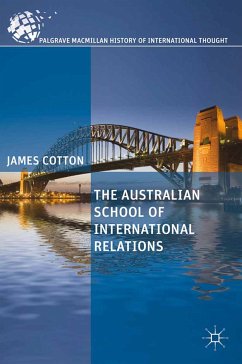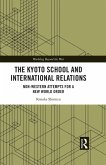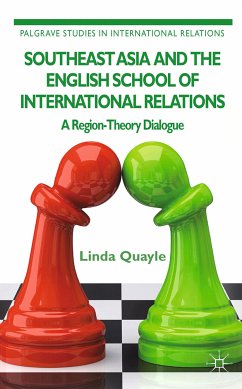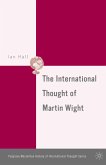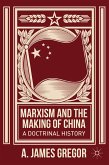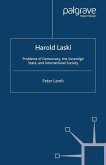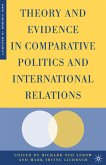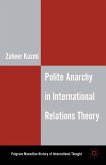Dieser Download kann aus rechtlichen Gründen nur mit Rechnungsadresse in A, B, BG, CY, CZ, D, DK, EW, E, FIN, F, GR, HR, H, IRL, I, LT, L, LR, M, NL, PL, P, R, S, SLO, SK ausgeliefert werden.
"The history of the discipline of IR has been the subject of several new histories in the last two decades. James Cotton's book adds a valuable new chapter to this story. He does so by engaging with the work of eight neglected scholars who, individually and collectively, further complicate the simplistic 'realism vs. idealism' framing that dominated the field during the early post-World War II era. In ending his story in around 1960, he has left an opening for other disciplinary historians to examine Australian contributions to the later 'great debates.' A companion volume would be compelled to position itself in relation to this work." Tim Dunne, Professor, University of Queensland, Australia, and author of Inventing International Society: A History of the English School
"Australia has always suffered from the fear of isolation and deficient power in its Asian neighborhood. In his admirable new book James Cotton explores Australia's responses, which include submersion in the British Commonwealth, appeasement of Asian states, economic interdependence, a naïve institutionalism, and reliance on the United States. As he shows, however, none of these is fully satisfactory." Professor Richard Rosecrance, Harvard University, USA

